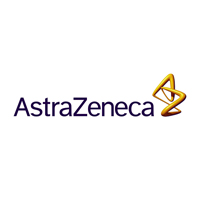AstraZeneca and Merck & Co (LON:AZN), Inc., Kenilworth, N.J., US today announced positive results from the randomised, double-blinded, placebo-controlled, Phase III SOLO-1 trial of Lynparza (olaparib) tablets.
Women with BRCA-mutated advanced ovarian cancer treated 1st-line with Lynparza maintenance therapy had a statistically-significant and clinically-meaningful improvement in progression-free survival compared to placebo. The safety and tolerability profile of Lynparza was consistent with previous trials. Based upon these data, AstraZeneca and MSD plan to initiate discussions with health authorities regarding regulatory submissions.
Sean Bohen, Executive Vice President, Global Medicines Development and Chief Medical Officer at AstraZeneca, said: “For the first time, we see a significant and clinically-impactful improvement in progression-free survival in the 1st-line maintenance setting for women with BRCA-mutated ovarian cancer treated with a PARP inhibitor. The SOLO-1 data reinforce the importance of knowing BRCA status at diagnosis, as this may enable women with BRCA-mutated ovarian cancer to receive Lynparza earlier. We would like to thank the investigators, hospitals and most of all the patients who took part in this trial, without whom medical advancements would not be possible.”
Roy Baynes, Senior Vice President and Head of Global Clinical Development, Chief Medical Officer, MSD Research Laboratories, said: “Building on the strong data we’ve seen with Lynparza to date, the data from SOLO-1 reinforces Lynparza’s ability to provide meaningful disease control with a well-characterised safety and tolerability profile. We look forward to presenting the full data set for SOLO-1 at a future medical meeting and working with regulatory authorities to bring Lynparza to women with ovarian cancer in the 1st-line maintenance setting as quickly as possible.”
Additionally, the ongoing GINECO/ENGOTov25 Phase III trial, PAOLA-1, is testing the effect of Lynparza in combination with bevacizumab as a 1st-line maintenance treatment in women with newly-diagnosed advanced ovarian cancer, regardless of their BRCA status. Results are expected in 2019.








































